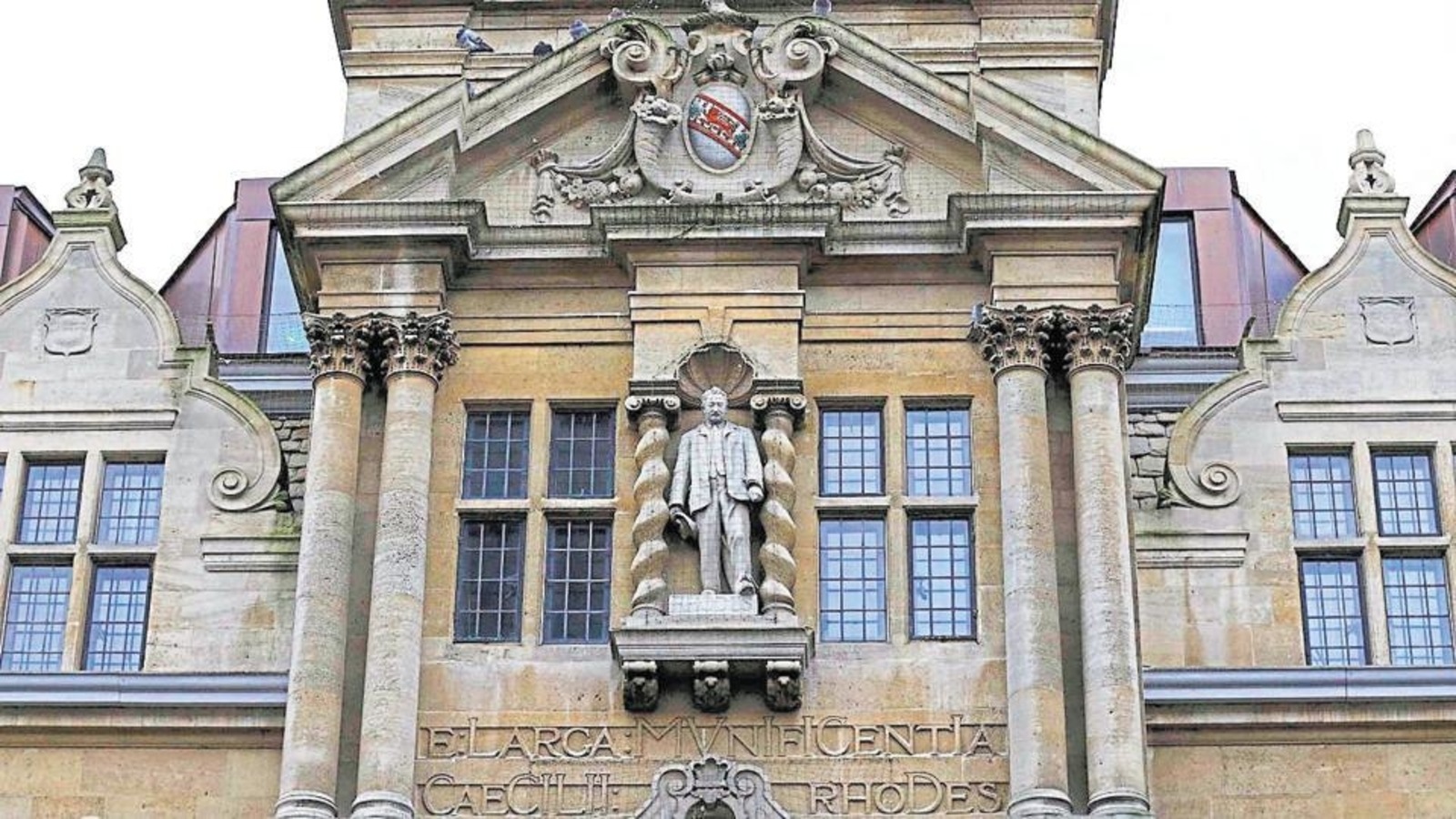
Oxford college to keep statue of imperialist Cecil Rhodes
The governing body of a college at Oxford University said Thursday it will not take down the statue of Victorian imperialist Cecil Rhodes on its facade despite the recommendation of a specially appointed commission for its removal.
Oriel College’s governing body said there were “regulatory and financial challenges” and that it would focus more time and energy on “improving educational equality, diversity and inclusion amongst its student cohort and academic community.”
The decision follows a long-running campaign for the removal of the statue of a man who made a fortune in the late 19th century from gold and diamond mines where miners labored in brutal conditions. That campaign gained momentum last year during the Black Lives Matter protests.
The decision represents somewhat of a U-turn by the college.
At the height of the protests in June, an independent inquiry to examine Rhodes’ legacy was set up after the governing body of Oriel College “expressed their wish” to remove the statue from outside the college.
Though a majority of members on the commission supported the original wish to remove the Rhodes’ statue, Oriel College said its governing body has now “decided not to begin the legal process for relocation of the memorials.”
“The governing body has carefully considered the regulatory and financial challenges, including the expected timeframe for removal, which could run into years with no certainty of outcome, together with the total cost of removal,” it said.
Rhodes was an education benefactor whose legacy includes Oxford University’s prestigious Rhodes scholarships, which have been awarded to international students for over a century. Famous Rhodes scholars include former U.S. President Bill Clinton and feminist writer Naomi Wolf.
His statue was removed from the University of Cape Town in South Africa in 2015 after students led a “Rhodes Must Fall” campaign.
During last year’s Black Lives Matters protests, historical monuments and statues around the world, honoring figures from Christopher Columbus to Belgium’s King Leopold II, became flash points in protests.
Perhaps most dramatically, in the English city of Bristol, the statue of 17th-century slave trader Edward Colston was forcibly removed by protesters and thrown it into the harbor. Colston was prominently involved in England’s slaving company, the Royal African Company, which transported tens of thousands of Africans across the Atlantic Ocean.
Neil Mendoza, Oriel College’s principal, acknowledged that the decision not to remove Rhodes’ statue will be “disappointing to some,” but highlighted the initiative the college will take to improve its outreach.
“It has been a careful, finely balanced debate and we are fully aware of the impact our decision is likely to have in the U.K. and further afield,” he said.
Stay connected with us on social media platform for instant update click here to join our Twitter, & Facebook
We are now on Telegram. Click here to join our channel (@TechiUpdate) and stay updated with the latest Technology headlines.
For all the latest Education News Click Here
For the latest news and updates, follow us on Google News.

